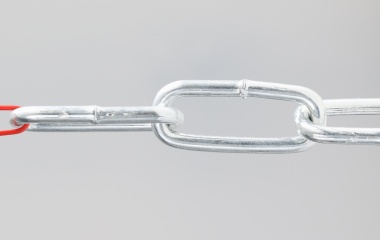
“Do not harden your heart and do not close your hand from your impoverished brother” (15:7). The mitzvah of tzedakah requires that we open our hearts and hands to help those in need. Not surprisingly, most successful fundraising today is done by playing to people's emotions: pictures of terror victims, a starving child or a cancer survivor are the (legitimate) “props” used to raise funds. Giving a well-reasoned intellectual argument as to why a cause should be supported is nice, but unlikely to inspire a donor to dig deep in his pockets. A picture of one tsunami victim will raise millions more dollars than anonymous pleas to relieve the suffering of hundreds of thousands of faceless victims.
This fundamental truth of human nature helps to explain why certain disasters are met with an outpouring of help and others are all but ignored. It also helps to explain why the day school system is teetering on collapse. All the research and studies in the world demonstrating the positive impact of a day school education for the middle class do little to inspire the wealthy. Reason is truly no match for emotion.
The Torah, reflecting human nature, commands that we first open our heart to the pain of others; if we do so, then it will be much easier to open our hands. It is our heart that tells the hand what to do. This idea is reflected in the shema where, as we say twice a day, “you shall not stray after your hearts and your eyes”. To paraphrase Rashi, our eyes see what our hearts desire.
Yet the heart alone is insufficient to guide us. Our emotions must, almost paradoxically, be molded by our intellect. Much of the emotional appeal of charity is the belief that one's donation makes a tangible difference in people's lives. Be it saving lives or broadening people’s cultural world, donors – many of whom are very practical, bottom-line-oriented business people – want to see the results of their charitable activities. They want some bang for their buck.
But what happens if repeated attempts fail to deliver the desired results? Despite our unprecedented wealth and continuous efforts, poverty is a problem that refuses to go away. Undoubtedly, our attempts could and should be better implemented. Yet the Torah's definition of tzedakah includes more than just helping the needy. “The poor will never cease to exist; therefore, I command you to surely open your hand to your poor and your destitute brothers in your land” (15:11). Would not the never-ending cycle of poverty be a reason not to give? Why try to eradicate poverty if poverty cannot be defeated? Couldn't our money be better used elsewhere?
On the most basic level, although we may not fully solve the problem, surely our efforts do help, even if not to the extent desired. Yet even were this not so, tzedakah would serve a crucial role. While we must never lose sight of the fact that the goal of tzedakah is to help the needy, it has an additional function—one that may be, at times, even more important—that of helping the donor. Giving to others helps develop our traits of caring, compassion, and consideration; traits that will serve us and society well in many other areas. Furthermore, it instils the notion that our money is entrusted to us by G-d and is a means, not an end in and of itself. That realization alone, properly applied, makes unethical business practices unthinkable.
Undoubtedly, appeals to donors based on the benefits to themselves lacks the emotional pull of helping others. The Torah, so sensitive to the nuances of life, subtly hints at this concept. As noted above, the mitzvah of tzedakah requires both the heart and the hand. Yet when the Torah, a few verses later, notes that poverty will always exist, we are commanded to open our hands; no mention is made of opening our hearts. We must continue to give, even if our hearts can't get the joy of seeing the fruits of our efforts.
Donors today are rightfully demanding better use of their funds and greater transparency from those who take our charitable dollars. Jewish law long ago demanded accountability in the collecting and distribution of our money. Yet our tradition has long realized that some problems have no easy solutions, and maybe no solution at all. Nonetheless, we must continue in our efforts to think beyond the problem before us. We may not be able to solve every problem, but we can gain much from the attempt to do exactly that, applying what we have learned to solve a different problem.
Shabbat Shalom!



